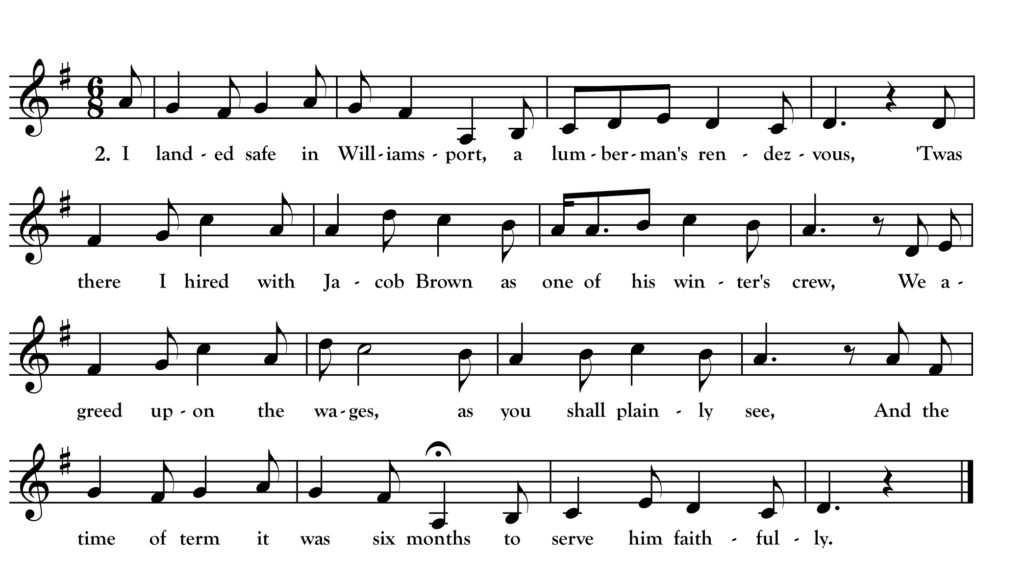The Lakes of Champlain
It was early in the morning Willie Lambert arose,
Straightway to the chamber of his comrade he goes,
He said “wake up my comrade, let nobody know,
It’s a fine summer’s morning and a-bathing we’ll go.”
The walked and they talked til they came to a lane,
There they met a keeper, a keeper of the game,
He said “Go back Willie Lambert, do not venture in,
These are deep and false waters in the Lakes of Champlain.”
Willie stripped himself off and the lake he swam round,
He swam to an island but not on dry ground,
He said “Go back my comrade, do not venture in,
There’s deep and false water in the Lakes of Champlain
It was early in the morning Willie’s sister arose,
Straightway to the chamber of her mother she goes,
She said “Mother, dear Mother, I had a true dream,
I dreamed I saw Willie in the clear watery stream.
It was early in the morning Willie’s mother was there,
Wringin’ of her hands and a-tearin’ of her hair,
“Oh murder, oh murder was nobody nigh,
For to venture their life for my own darlin’ boy?”
It was early in the morning Willie’s uncle was there,
He swum the lake round like a man in despair,
“Oh was he sure murdered or did he fall in,
These are deep and false waters in the Lakes of Champlain.”
For to see Willie’s funeral ’twill be a great sight,
There’ll be four and twenty young men all dressed up in white,
They’ll take him to the graveyard, lay him in the clay
Sayin’ “Fare you well Willie” and go weepin’ away.
To see Willie’s sister, ’twill grieve your heart sore,
To see Willie’s mother, ’twill grieve your heart more,
To see Willie’s true love, ’twill grieve your heart pain,
There’s deep and false water in the Lakes of Champlain.
I recently had the opportunity to accompany my friend (and sometimes performance partner) Sara Grey for some concerts out in New England and Sara introduced me to this beautiful American version of what in Ireland is usually called “Lakes of Coolfin” or “Willie Leonard.” Sara’s version is a composite of a few collected in Vermont and I transcribed it here from her singing with help from the text she prints in her book Song Migration from Ireland & Scotland to North America.



